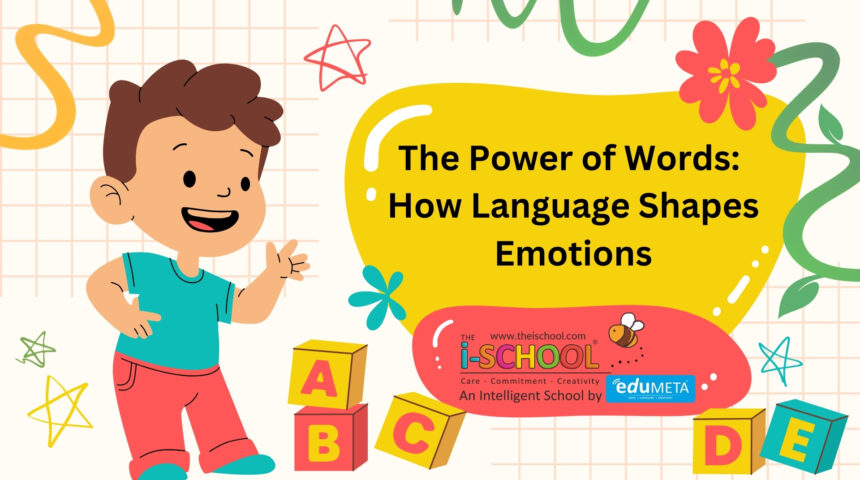The Power of Words: How Language Shapes Emotions

Words are more than just a means of communication; they are powerful tools that can influence our emotions, shape our perceptions, and impact our relationships. The language we use, both with ourselves and others, has a profound effect on how we feel and how we make others feel. Understanding the power of words is essential for both children and adults as it lays the foundation for emotional intelligence, empathy, and healthy communication.
How Language Influences Emotions
When we speak or write, our choice of words can trigger different emotional responses. For example, positive words like “love,” “gratitude,” and “hope” tend to evoke feelings of happiness, warmth, and optimism. On the other hand, negative words such as “hate,” “failure,” or “fear” can induce feelings of sadness, anger, or anxiety. This is true not only when we communicate with others but also when we talk to ourselves.
Self-Talk: The Silent Influencer
The words we say to ourselves, known as self-talk, play a critical role in shaping our emotional well-being. Positive self-talk can boost confidence, reduce stress, and enhance motivation. For instance, telling yourself, “I can do this” or “I am capable” can empower you to overcome challenges and stay resilient in difficult situations.
Conversely, negative self-talk can undermine self-esteem and increase feelings of anxiety and depression. Statements like “I’m not good enough” or “I always fail” can create a self-fulfilling prophecy, where you start to believe these words and act in ways that reinforce them.
The Impact of Words on Others
The words we use in our interactions with others can significantly affect their emotions and behavior. Kind and encouraging words can uplift someone’s spirits, strengthen relationships, and foster a positive environment. Compliments, expressions of gratitude, and words of support are simple yet powerful ways to make others feel valued and appreciated.
On the other hand, hurtful or critical language can damage relationships and cause emotional pain. Words spoken in anger or frustration can leave lasting scars, especially when directed at children who are still developing their sense of self. It’s important to remember that once spoken, words cannot be taken back, and their impact can linger long after the conversation has ended.
Teaching Children the Power of Words
Helping children understand the power of words is an essential part of their emotional and social development. By teaching them to choose their words carefully, we can equip them with the tools to build positive relationships and navigate social situations with empathy and respect.
1. Encourage Positive Language:
Encourage children to use positive language when speaking to themselves and others. Phrases like “I can try” instead of “I can’t do it” or “You did a great job” instead of “That’s wrong” can make a significant difference in how they and others feel.
2. Model Effective Communication:
Children learn by example, so it’s important for parents and caregivers to model effective communication. Use kind and respectful language, even in challenging situations, and show them how to express their feelings without resorting to hurtful words.
3. Teach Empathy:
Help children understand how their words can affect others by teaching them empathy. Encourage them to think about how they would feel if someone said the same words to them and to choose language that is considerate and supportive.
Conclusion
Words are powerful, and the language we use shapes not only our emotions but also the emotions of those around us. By becoming more mindful of the words we choose, we can foster a positive environment, build stronger relationships, and enhance our own emotional well-being. Whether we’re speaking to ourselves or others, the right words can inspire, comfort, and uplift, while the wrong ones can harm and divide. Teaching children the power of words is a gift that will serve them well throughout their lives, helping them to navigate the world with kindness, confidence, and compassion.
